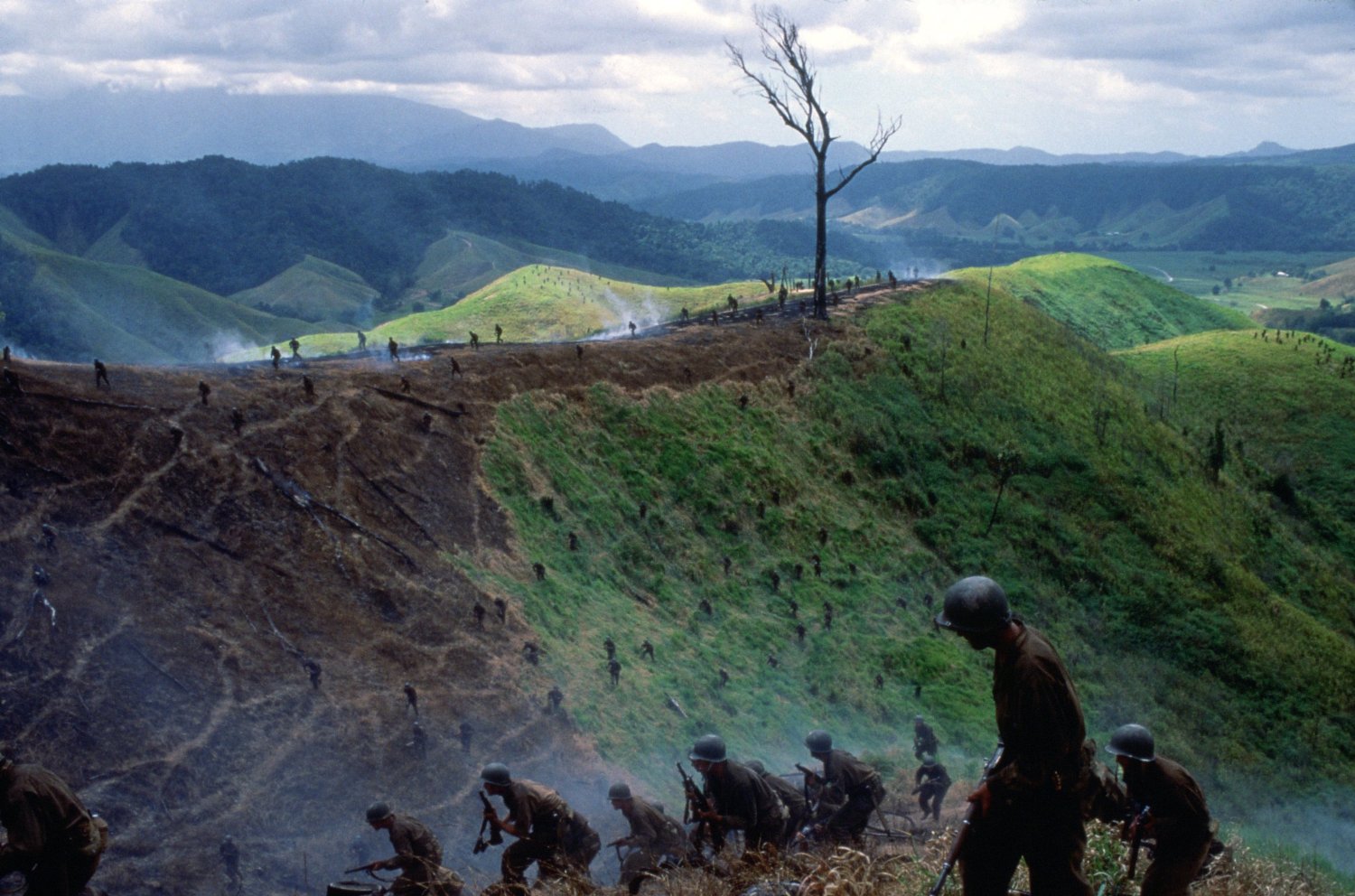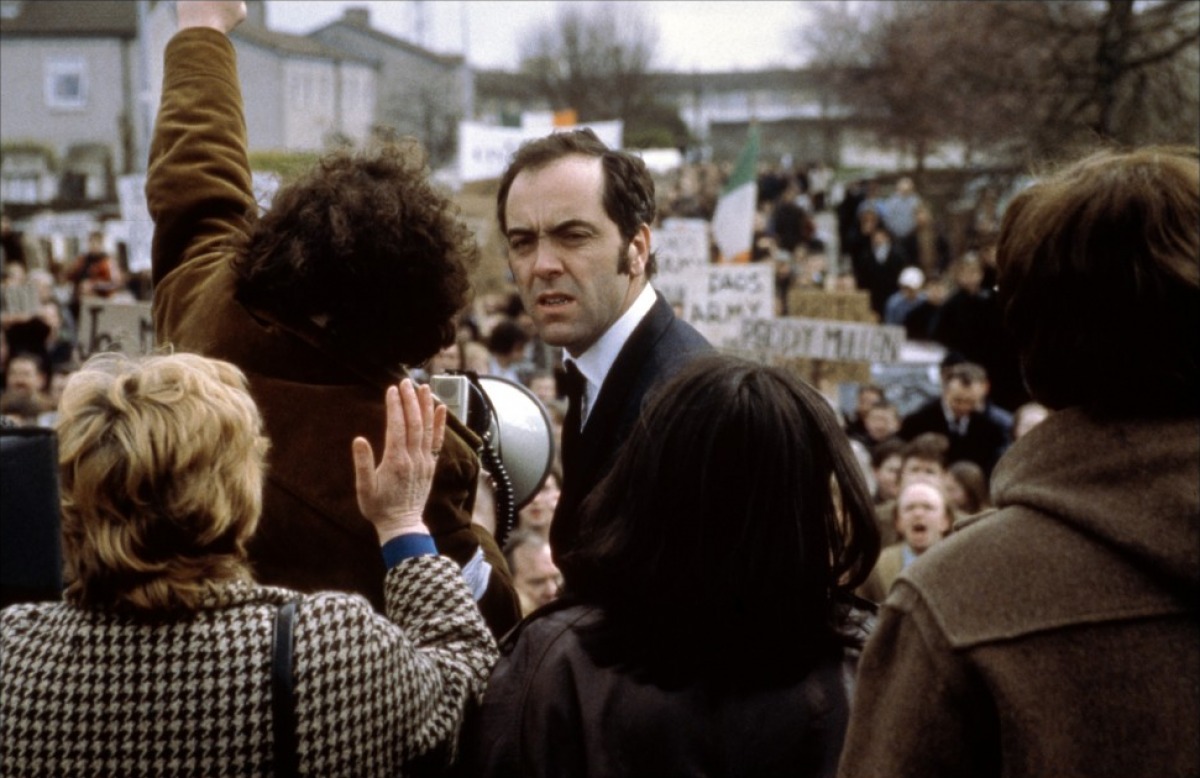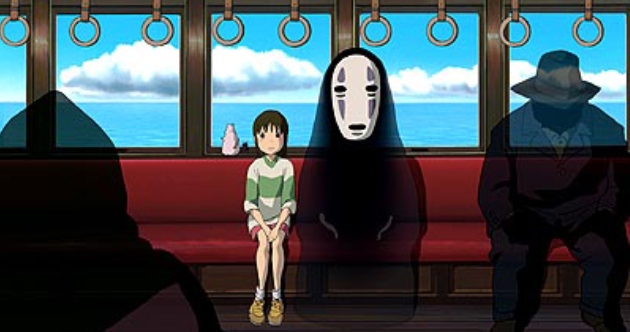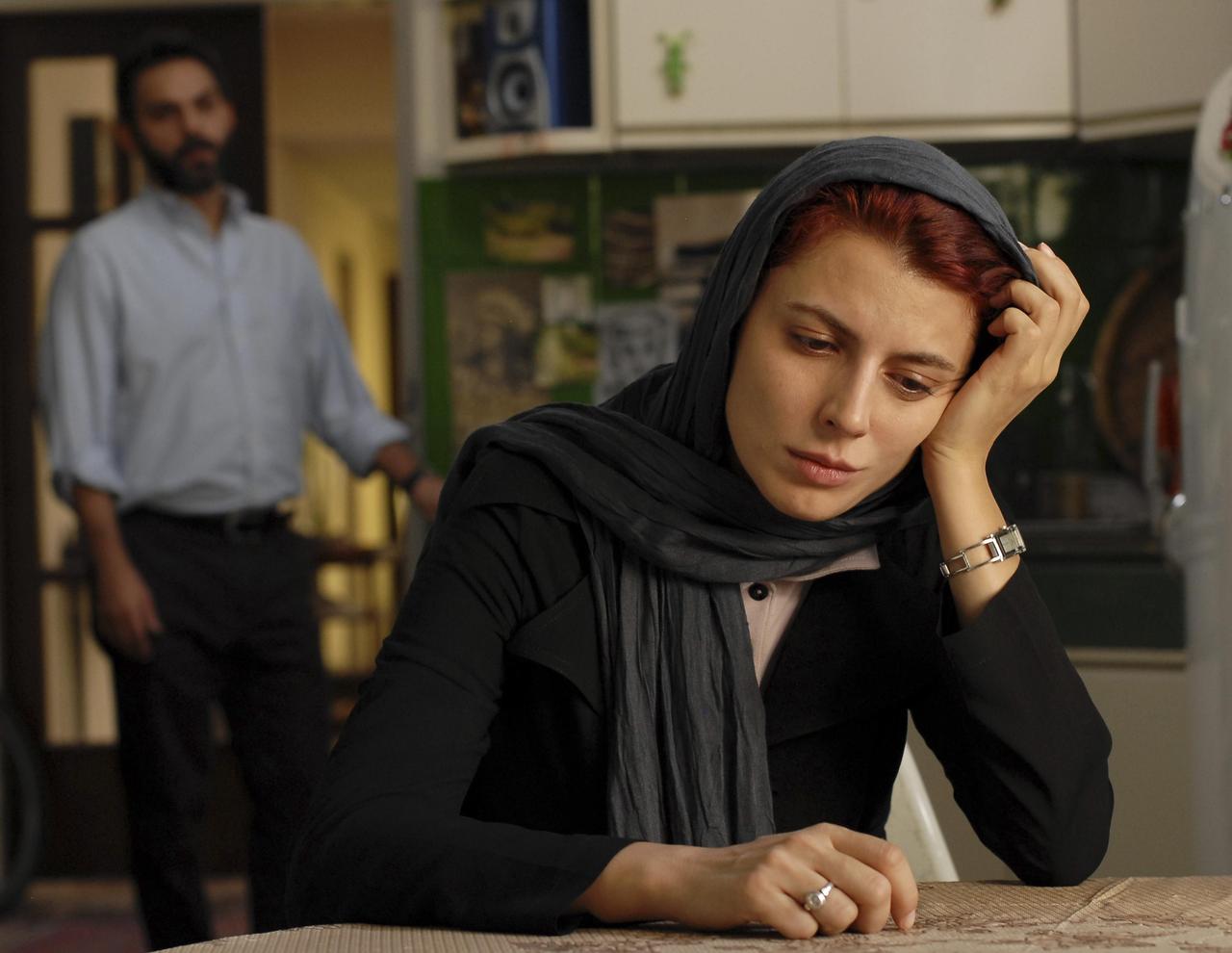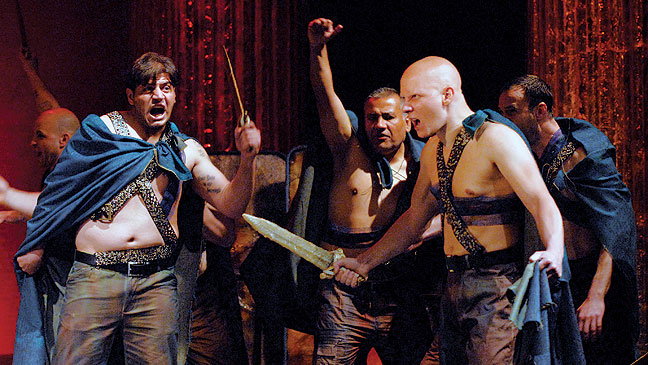18. The People VS. Larry Flynt (Milos Forman, 1997)
In the late 70s, the sexual revolution was strong in the United States. During this time, the magazine Hustler rose to prominence; it was a more popular version of Playboy, with crude language and photos of naked women in outrageous positions, pushing the limits of American tolerance. Larry Flynt, the publisher, played by Woody Harrelson, built an empire and became one of the most important men in America. However, he had to fight tooth and nail to win legal battles, as well as an attack that left him paralyzed.
Fighting the criticism of glorifying pornography throughout the film, Milos Forman said it was really about freedom of the press and not about porn itself. Larry Flynt himself appears in a cameo, playing one of the judges of the processes to which he was subjected. In addition to the Golden Bear, the work was nominated for Oscars for directing and lead actor.
19. The Thin Red Line (Terrence Malick, 1998)
During World War II, the result of Guadalcanal combat was a strong influence on Japanese troops in the Pacific theater. In “The Thin Red Line”, a group of American soldiers are sent to help the units already in the battlefield. Once arriving, the soldiers learn the true horror of war, while developing strong relationship bonds.
Marking the return of Terrence Malick 20 years after directing his second film, “Days of Heaven”, this feature got people talking by showing the war through a different look rather than other popular war movies, such as Steven Spielberg’s “Saving Private Ryan”, released the same year.
With many myths and stories surrounding pre- and post-productions of the film, Malick delivered a treatise on WWII in an almost theological way, with the conflicts created by man as an affront to nature, while leading us to follow the story through the eyes of it.
20. Magnolia (Paul Thomas Anderson, 1999)
The story takes place in Los Angeles, around Magnolia Boulevard in the San Fernando Valley, showing a day in the life of various connected characters. A TV producer (Jason Robards) on his deathbed, living with his dedicated nurse (Philip Seymour Hoffman), and his young wife (Julianne Moore), wishes to meet again with his son (Tom Cruise), a renowned motivational speaker with an extremely misogynistic lifestyle.
A famous TV game show host (Philip Baker Hall), who is dying of cancer, wants closure his drug addict daughter (Melora Waters). The cast includes a boy wonder (Jeremy Blackman) controlled by his vicious father, along with a well-intentioned but largely unsuccessful career policeman (John C. Reilly). The coincidences and fate twists that tie them all together are the driving force of this mosaic-shaped film.
Filled with biblical references, paired with a strong influence in Robert Altman’s works, “Magnolia” is ambitious by contemplating themes including incest, homosexuality, drugs and violence, always through a empathic view on its characters, humanizing them at all times. One of the most acclaimed films of Paul Thomas Anderson’s career, it was also nominated for an Oscar that year, for Best Original Screenplay.
21. Bloody Sunday (Paul Greengrass, 2001)
This 2002 film follows the lives of four men involved in the events on January 30, 1972 in Derry, Northern Ireland, when a peaceful march for human rights ended with 14 dead and 26 wounded by British soldiers.
Through a documentary aesthetic, Greengrass used his camera like a war reporter, immersing the events of this episode that would become known as “Bloody Sunday” that made the IRA, an underground organization that fought for the separation of Northern Ireland from the United Kingdom, gain strength.
It shared the Golden Bear with “Spirited Away” and won major awards at the Sundance Film Festival and the BAFTAs.
22. Spirited Away (Hayao Miyazaki, 2001)
Chihiro is a spoiled 10-year-old girl, accompanying her parents on a journey of change, who suddenly finds herself trapped in a desperate situation. Her parents, after eating the food from an unknown restaurant, are transformed into pigs. The girl sees herself in a fanciful and bizarre world and must do everything to reverse the situation, save her parents and find their way back home.
One of the most acclaimed animated films of all time, “Spirited Away” was produced by Studio Ghibli, one of the world’s greatest animation studios. In this sensitive masterpiece, Miyazaki gives continuity to his successful style that managed to appeal kids and also, if not mainly, adults. It also won the Oscar for Best Animated Feature.
23. A Separation (Asghar Farhadi, 2011)
Nader and Simin are divorcing, due to diverging opinions on whether to leave Iran. While Simin wants to leave the country to give better living conditions to her daughter, Nader wants to remain in Iran to take care of his father who suffers from Alzheimer’s disease. Although they are in love, they come to the conclusion that they must separate.
Without a wife to take care of the house, Nader hires a day laborer to handle household chores and taking care of his father’s routine. However, the laborer is pregnant and works without her husband’s consent, who is a psychologically unstable man. These conditions, along a series of incidents, quickly lead both families to a judgment of moral and religious nature where no one wins.
Leaving aside the realistic aesthetics of Iranian cinema that were successful in the West in the 90s, Farhadi builds an intricate narrative that makes this family drama provide tense moments worthy of a Hitchcock film. Through a clever script, he dissects from all perspectives the divisions that still prevail in society, between classes, husband and wife, parent and child, state and citizen.
Aside from the Golden Bear, the film won the Silver Bear for best actress and for best actor. It was nominated also for an Oscar for Best Original Screenplay, and it won for Best Foreign Language Film.
24. Caesar Must Die (Taviani Brothers, 2012)
A fascinating cinematic game that unites different forces such as documentary, theater and prison life, this film by the Taviani brothers is a unique example in recent cinema. Filmed at the maximum-security area of Rebibbia’s prison in Italy, using the detainees themselves as actors, the feature film is an adaptation of the play “Julius Caesar” by William Shakespeare.
Through black and white photography, the directors hold a sober mise-en-scène aware of a real Shakespearean drama feel, without glorifying the criminal world or making presumptions.
25. Child’s Pose (Calin Peter Netzer, 2013)
Barbu is an unfortunate man who, at age 34, seeks independence when leaving his home of his mother, Cornelia, played brilliantly by Luminita Gheorghiu. The situation does not please Cornelia, an overprotective mother. To make things worse, Barbu gets involved in a tragic accident that causes the death of a boy. Cornelia does whatever it takes to prevent her son from being convicted by accident.
Although initially resembling a family drama, this film does more than that; it plunges into a study of family relationships amongst the socio-economic system of present-day Romania, showing the difference of classes and a incommunicability that exists amongst the two members of the family, and also between people of different social classes, situations that are easy to relate by audiences from several different countries.
Author Bio: Leandro Correia is a Brazilian journalist who loves cinema, his favorite activity is to study and research on the seventh art.

